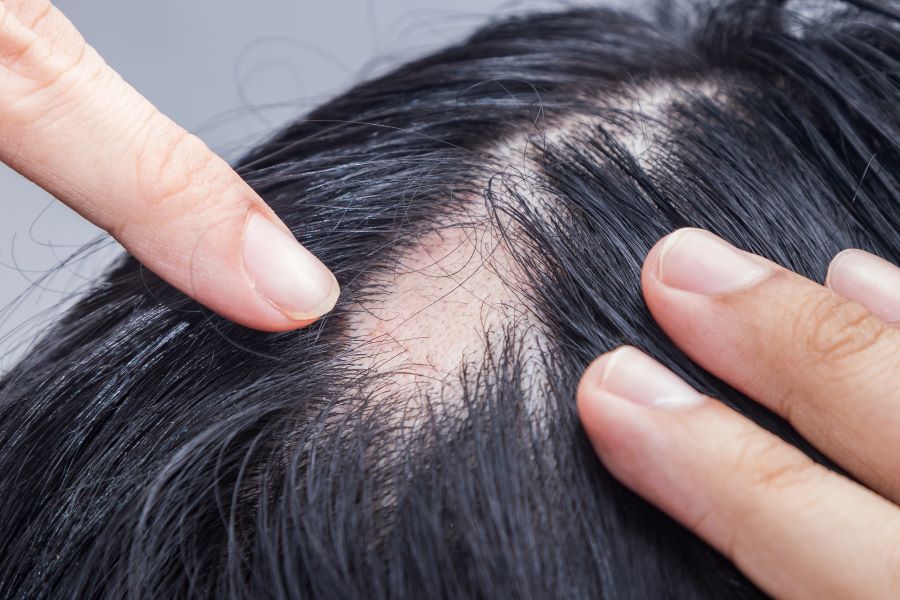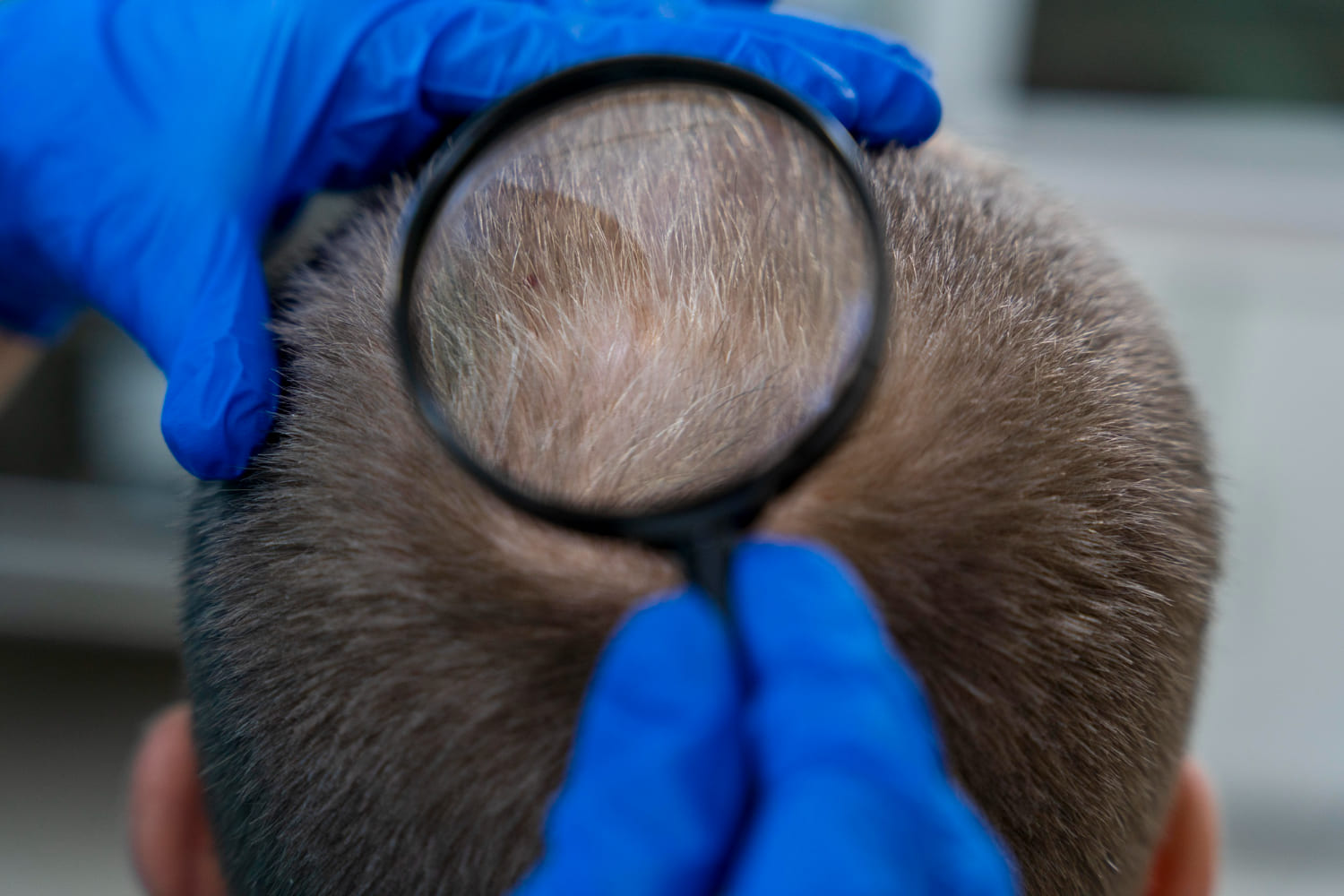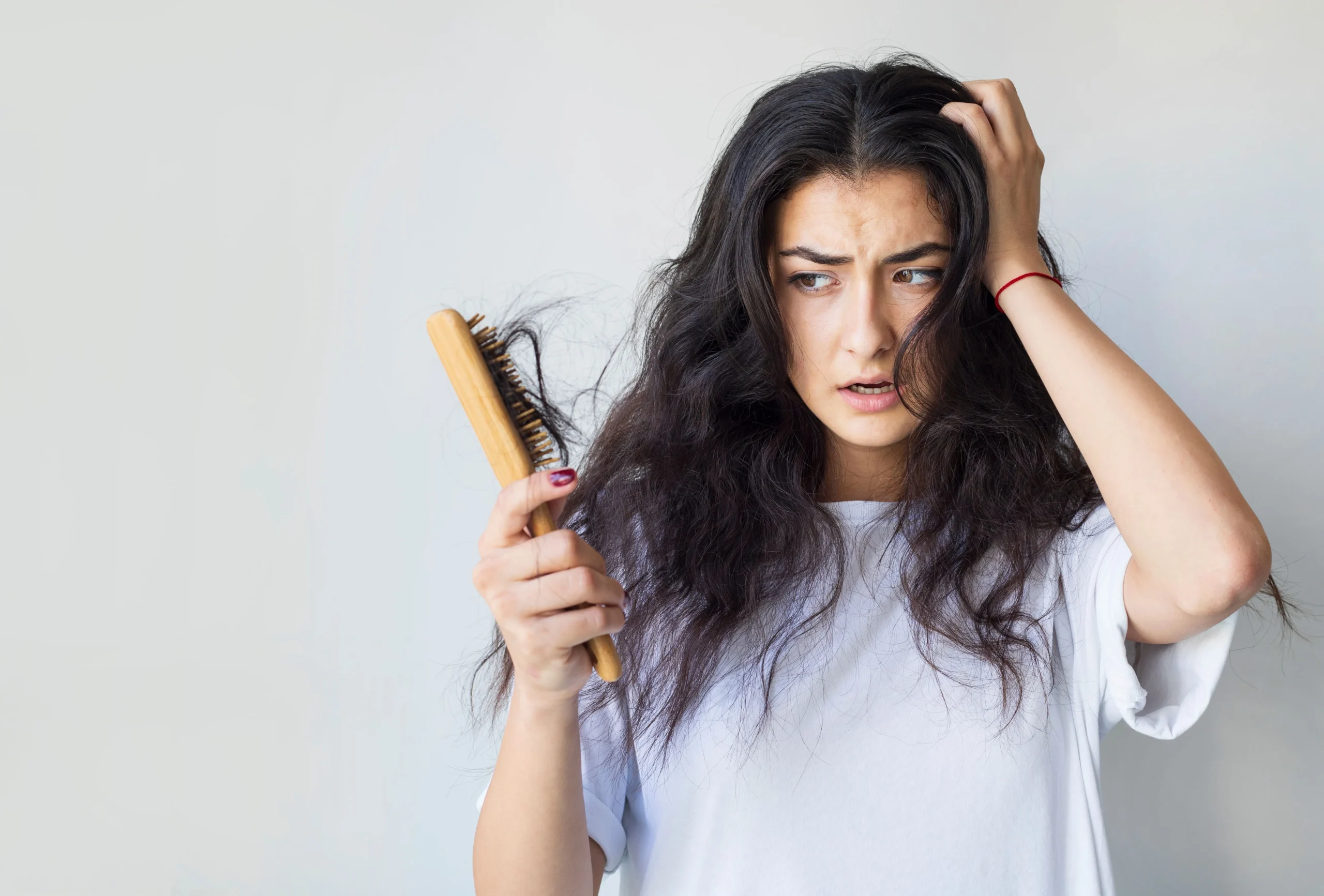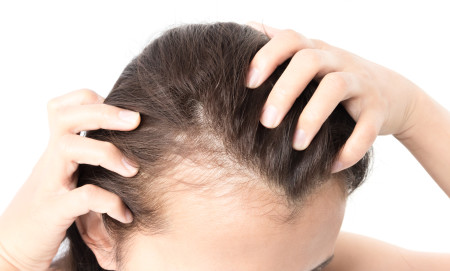Understanding Alopecia Areata and Its Treatment with Homeopathy
Alopecia areata is a condition where hair falls out in small patches, typically on the scalp, but it can also affect other parts of the body with hair. When it affects the beard, it’s called alopecia areata barbae. This condition can impact people of all ages, genders, and ethnicities equally. Having bald patches on the scalp, beard, or eyebrows can be very upsetting, especially because the condition often appears suddenly, recurs periodically, and has an unpredictable course. Although alopecia areata doesn’t harm physical health, it can take a toll on a person’s emotional well-being.
How Homeopathy Can Help
Homeopathy offers a holistic approach to treating alopecia areata, focusing on addressing the root cause of the problem. It’s particularly effective for autoimmune conditions like alopecia areata by working to balance the immune system. Initially, homeopathic treatments help stop the bald patches from growing and prevent new ones from forming. Over time, they can also promote hair regrowth. Unlike conventional treatments such as corticosteroids and immunosuppressants, which may have side effects and fail to prevent new bald spots, homeopathy offers a natural, side-effect-free alternative. The remedies, usually in the form of small, sweet pills, work internally to correct immune system imbalances rather than merely suppressing symptoms.
Homeopathy: Strengthening the Immune System Naturally
Homeopathic remedies for alopecia areata help by regulating the immune system, which is mistakenly attacking the hair follicles. This approach has been quite successful in helping hair regrow and preventing further bald spots from appearing.
Personalized Treatment Approach
One of the key principles of homeopathy is individualized treatment. For each case of alopecia areata, the homeopathic practitioner selects remedies based on the unique symptoms and characteristics of the patient. This personalized approach ensures the most effective treatment and optimal results. It’s important to consult a homeopathic professional to determine the correct remedy, dosage, and potency, as these vary from case to case. Self-medication is not recommended.
Safe and Side-Effect-Free
Homeopathic medicines are derived from natural substances and do not contain harmful chemicals. They are safe for people of all ages and have no toxic side effects, making them a worry-free treatment option.
Top 6 Homeopathic Remedies for Alopecia Areata
Here are six highly effective homeopathic medicines commonly used to treat alopecia areata:
- Fluoric Acid
Uses: Best for bald patches anywhere on the scalp that are itchy and sensitive to touch.
Dosage: Typically, Fluoric Acid 30C is taken two to three times daily. The dosage can be reduced once hair starts regrowing. - Phosphorus
Uses: Ideal for hair loss primarily from the front or sides of the scalp.
Dosage: Often taken in 30C potency, two times a day for effective results. - Lycopodium
Uses: Effective for hair loss occurring mainly on the top of the scalp. It also helps with premature greying of hair.
Dosage: Begin with 30C potency twice a day. Higher potencies should be taken under the guidance of a homeopathic physician. - Calcarea Carb
Uses: Suitable for patchy hair loss accompanied by increased sweating on the scalp.
Dosage: Commonly used in 30C potency, taken once in the morning and once in the evening. - Vinca Minor
Uses: Best for cases where hair falls out in patches and grows back white.
Dosage: Usually taken in 30C potency twice a day to treat hair loss and prevent whitening of regrown hair. - Hepar Sulph
Uses: Helpful for hair loss in patches with scalp sensitivity to touch.
Dosage: Typically used in 30C potency, one to two times a day.
Recognizing the Signs and Symptoms of Alopecia Areata
Alopecia areata typically presents as round or oval bald patches on the scalp or other hair-bearing areas like the eyebrows or beard. The patches are usually smooth to the touch and about the size of a coin. While some individuals may experience complete hair loss, this is less common. The most frequent sites of hair loss are the scalp and beard, though any hair-covered body part can be affected. Some people may notice itching when hair starts to fall out, but there is generally no physical discomfort associated with the condition.
Rare Forms of Alopecia Areata:
- Alopecia Areata Totalis: Loss of all hair on the scalp.
- Alopecia Areata Universalis: Loss of all hair on the body.
- Ophiasis Alopecia Areata: Band-like hair loss around the sides and back of the head.
- Diffuse Alopecia Areata: Sudden, generalized hair loss rather than patchy.
Causes and Risk Factors
Alopecia areata is an autoimmune condition where the body’s immune system mistakenly attacks hair follicles, leading to hair loss. It often runs in families, suggesting a genetic component. Individuals with alopecia areata may have a family history of autoimmune diseases such as vitiligo or thyroiditis. Triggers for the condition can include viral infections, vaccines, and physical stress.
Is Alopecia Areata Permanent?
Alopecia areata is quite common, affecting about one percent of the population at any time. The good news is that it doesn’t cause permanent hair loss since the hair follicles remain intact and capable of regrowth. The condition is reversible, and many people experience hair regrowth over time.
Diagnosing Alopecia Areata
Diagnosis is usually straightforward, based on the pattern of hair loss. In rare cases, a doctor may perform a scalp biopsy or blood tests to rule out other autoimmune conditions.




